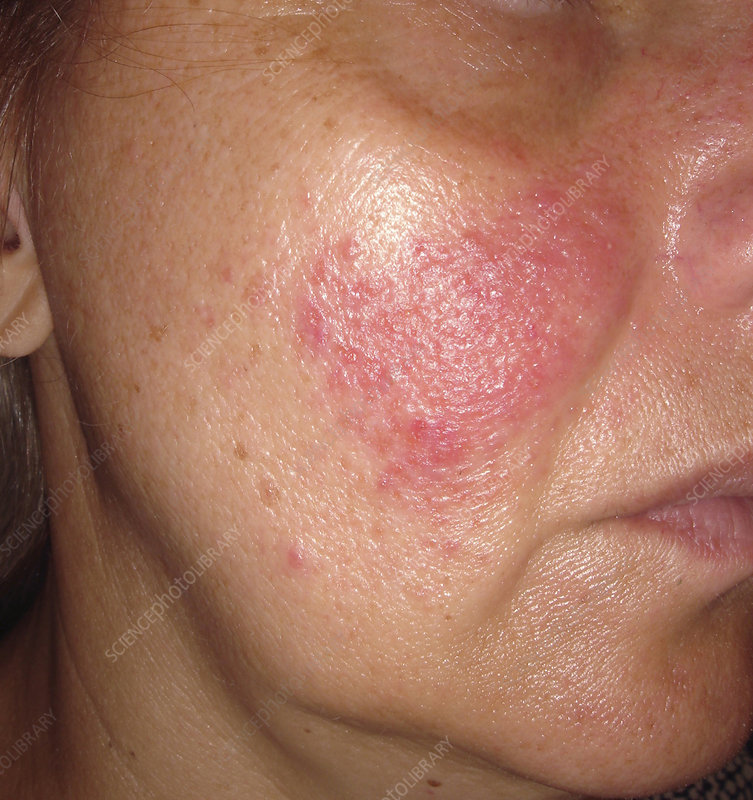General Health Tips & News
Papulopustular Rosacea; Top Vitamins and Supplements for Papulopustular Rosacea
By A.S. (staff writer) , published on July 05, 2021

Medicine Telehealth Health Papulopustular Rosacea
What is Rosacea?
Rosacea is a chronic inflammatory skin condition involving the central face occurs in approximately 10% of individuals usually after the fourth decade of life and is diagnosed in over 13 million patients in the United States alone.
Rosacea results in red spots (papules) and sometimes pustules. The main symptoms of rosacea are facial flushing, irritated skin, and small, red, pus-filled bumps on the skin that are present during flare-ups. Typically, rosacea affects only skin on your nose, cheeks, and forehead.
Papulopustular Rosacea:
Papulopustular (acne) rosacea (PPR) is the definitive manifestation of rosacea that presents with inflamed red bumps and pustules on the forehead, nose, cheeks, and chin.
Mostly, women are affected by this condition, those who are in the middle aged group. Rosacea sufferers fundamentally experience redness in the central part of the face, which encompasses erythematous papules containing pinpoint pus.
Patients may present with a history of flushes on their faces.
Best Vitamins and Supplements for Papulopustular Rosacea (PPR)
1. Vitamin K
Vitamin K is a potent antioxidant protects the skin from harmful free radicals. Basically, Vitamin K works to decrease inflammation, protect the skin from UV rays and the environment, and repair the skin barriers.
2. Vitamin A
In addition to have beneficial effects on vision, Vitamin A has immense beneficial effects on the immune function and the health of skin, hair, and nails. A prevalent treatment given by doctors for skin conditions is Accutane, which is fundamentally synthetic Vitamin A. Thus, oral intake of vitamin A has a vital role in rejuvenating skin and treating skin disorders.
3. Ginger
Anti-inflammatory foods such as ginger are good for skin ailments. Ginger is concentrated with B Vitamins and anti-oxidants. It is believed that ginger is loaded with more than 40 antioxidants that help combat oxidative stress. Ginger helps flush out toxins and promotes blood circulation, helping to alleviate acne and rosacea.
4. Hyaluronic Acid
Skin cells naturally produce hyaluronic acid for moisture retention. When incorporated in skincare products, it performs the same task. It is imperative in rosacea as its sufferers have insufficient skin moisture and compromised barriers. Thus, hyaluronic acid moistures the skin and improves in barrier protection.
5. Probiotics
Topical and oral probiotics are serving as promising treatment options for skin conditions with acne. Recent studies have found that probiotics have beneficial effects on acne with negligible side effects.
Some of the probiotics found in yogurt and serves as promising supplement option for acne.
Studies have reported positive effects of probiotics on Papulopustular rosacea. At first, they modify the composition of gut bacteria and fight the pathogenic bacteria. They also possess anti-inflammatory properties. In addition, the bacteria in probiotics can also enhance skin’s barriers.
Life Style Modifications for PPR
Besides using home remedies, lifestyle modifications are also effective in alleviating symptoms of PPR. These symptoms include,
-
Follow a daily schedule routine to avoid rosacea flare-ups.
-
Consume more anti-inflammatory foods like ginger, kale and avocado.
-
Apply sunscreen when going out in sun
-
Avoid specific drugs that may cause a flare-up, such as topical steroids, beta-blockers and vasodilators.
References
- All about rosacea. (n.d.).
rosacea.org/patients/allaboutrosacea.php - Mayo Clinic Staff. (2018). Rosacea.
mayoclinic.org/diseases-conditions/rosacea/symptoms-causes/syc-20353815 - Rosacea. (n.d.).
aad.org/public/diseases/acne-and-rosacea/rosacea - Rosacea: Overview. (2014).
ncbi.nlm.nih.gov/pubmedhealth/PMH0072660 - Weiss E, et al. (2017). Diet and rosacea: The role of dietary change in the management of rosacea. DOI:
10.5826/dpc.0704a08
Find articles related to: Medicine Telehealth Health Papulopustular Rosacea
More articles about General Health Tips & News
Back to the Health Tips Index




